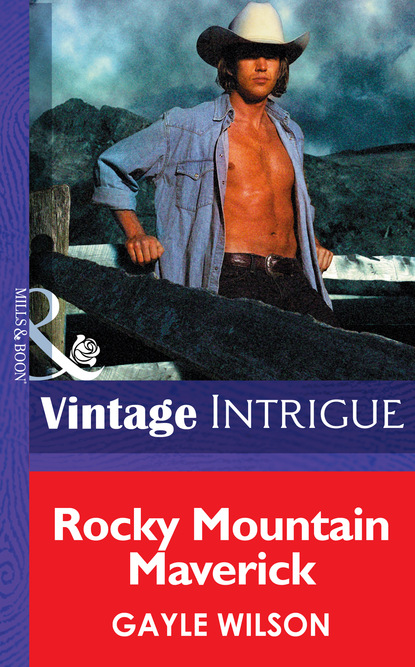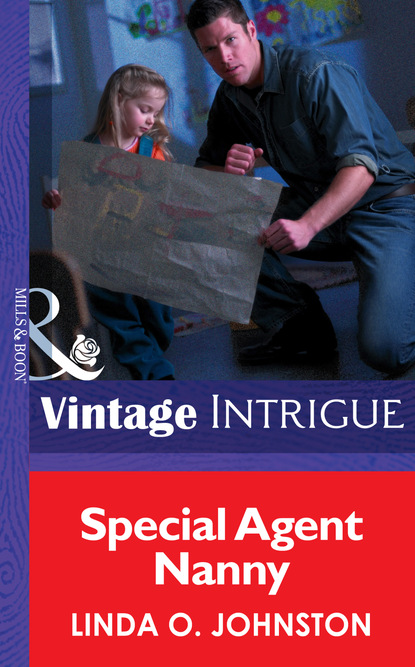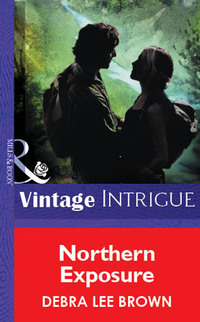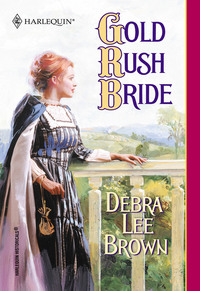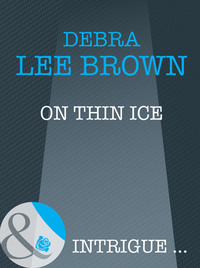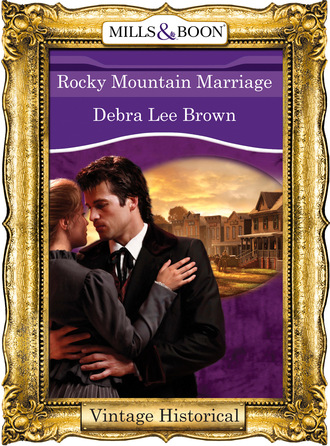
Полная версия
Rocky Mountain Marriage
The banker rushed out from behind the counter, scooted the woman and her dog aside, then knelt to collect her things. Chance had the same idea at the same moment. The two men butted heads in their frenzy.
“Oh, my key!” The small brass key that had accompanied her father’s letter lay at her feet.
“Allow me.” The banker snatched it up a split second before Chance could get his hands on it. He secured everything else inside her reticule, then stood. It was clear from the first that Chance Wellesley didn’t like him, which was reason enough to commend him to her.
“Your things, Miss Fitzpatrick.” He offered her the reticule and smiled. His expression darkened as he nodded at Chance. “Hello, Wellesley. Here for another loan?”
Chance glared at him, then turned his attention to the key, which the banker had not yet returned to her.
“John Gardner, at your service, miss.” He gave her a little bow, which she thought charming.
Chance muttered something rude under his breath.
Dora ignored him. “I’m glad to know you, Mr. Gardner.”
“You’re William Fitzpatrick’s daughter?”
“That’s correct.” It was so nice to hear her father called something other than Wild Bill.
“Although the bank does hold the mortgage on his property—your property now, as I understand from Mr. Grimmer—I’m very sorry to tell you that your father didn’t keep an account here.”
“Oh.” She knew her disappointment showed.
“Told you so,” Chance said.
She and Mr. Gardner moved closer, effectively shutting him out of their conversation.
“I didn’t know there was a mortgage. Is it sizable?”
“I’m afraid it is.”
Her hopes sunk.
“I hate to be the bearer of bad news, but your father had a number of creditors, and was behind on his interest payments to the bank when he died.”
“I see.” He’d mentioned none of this in his letters to her. Perhaps her mother had been right about his character after all.
“However, this is the key to his safety deposit box.” He dropped the small brass key into her gloved hand.
A safety deposit box! Of course! That explained the strange marking on the key. Each bank had a unique identifier.
“Perhaps what’s inside will solve all your problems.”
“Well, I’ll be damned.” Chance looked over her shoulder at the key. He was so close, she felt his warm breath on her neck and detected the faint scent of his shaving soap. It was sandalwood and rather pleasant, unlike the man himself.
“I suppose you’d like to open it right away.”
“Yes, I would,” she said, turning her attention back to the matter at hand. “I’d also like to discuss the sale of my father’s property, if you have the time.”
“I’ll make the time.” He dismissed Chance with a glower. “I’ll deal with you later, Wellesley.”
Chance ignored him and followed them into the office in the back.
She whirled on him. “What is it now?” Her irritation was not lost on Mr. Gardner.
“Would you like me to intervene?”
“No. Thank you. I can handle Mr. Wellesley myself.” She marched back out to the front.
Chance sauntered out behind her. “I like the sound of that, Dora.”
“Of what?” She didn’t bother reminding him that she hadn’t given him permission to call her by her Christian name, and a nickname at that.
“Of you handling me yourself.” He grinned.
“Mr. Wellesley!”
“I wish you’d call me Chance.”
She’d rather burn in hell. “I have only one thing to say to you.”
He hitched his hip against the hand-carved walnut partition separating the bank’s customer area from the back offices and waited for her to continue.
“If you think you’re going to get your hands on my father’s money, you’re wrong.”
“What money?” He arched a brow at her, as if a point had just been scored in his favor.
In the morning light she could see the fine worry lines around his eyes and forehead, and a depth to his eyes she hadn’t noticed before. The impression contradicted the roguish demeanor he seemed determined to exhibit to perfection.
She gathered her wits, ignoring the stunned expressions and hushed whispers of the bank’s customers and said, “None of your business.”
“Fair enough.”
His acquiescence stunned her. “Fine.” Before he could say anything else to annoy her, she brushed past him and returned to the banker’s office.
“Everything all right, Miss Fitzpatrick?” It was plain he’d overheard their conversation.
“Just fine.”
“If you don’t mind my giving advice… Chance Wellesley is a gambler and a notorious ladies’ man to boot. You might want to think twice about being seen with him.”
“Yes, well, I appreciate your advice, Mr. Gardner.” It seemed strange to her that the banker would warn her against him in one breath, then turn around and loan him money in the next. “I’d like to see my father’s safety deposit box now, if it’s not too much trouble.”
“No trouble at all.” He came around his desk, retrieved a key from his watch pocket that was secured to a heavy chain, then opened a door behind which was a set of stairs. “The vault is in the basement. After you.”
The vault room was well-secured and brightly lit. She was momentarily startled by the two armed guards seated in the foyer, late-model rifles resting in their laps. The banker nodded at them, and they disappeared up the stairs.
She approached the wall of safety deposit boxes with her key.
“It’s this one, I believe.” Mr. Gardner pulled a long metal strongbox from one of the numbered cubbyholes set into the wall and placed it on a nearby table. “Allow me.” He held out his hand for the key, his gaze fixed on hers. His blue eyes sparkled in the lamp light.
She considered that John Gardner had an honest face and a smile every bit as unassuming as Chance Wellesley’s was wicked. He was her father’s banker and she wanted to trust him, but if she’d learned anything from reading all those mystery novels, it was to never trust anyone where large sums of money were concerned.
She hesitated, staring at his manicured hand, then said, “I think I’d like to open it alone, if you don’t mind.”
He was speechless for a moment, then recovered himself. “Of course. How stupid of me. Please…” He pulled out the single chair for her to sit. She made herself comfortable. “I’ll be right upstairs if you need me.”
“Thank you.”
She waited until she heard him top the flight of stairs and the sound of his footfalls in the room above her. It was cool in the vault room, but she was perspiring.
Debts, a mortgage and a six-thousand-acre ranch that no one wanted to buy.
She slid off her gloves and realized her hands were shaking. When she’d received her father’s letter and had made the decision to relocate to Last Call, she’d liquidated her life’s savings, which hadn’t amounted to much, and had given notice at the one-room school in Colorado Springs where she’d taught for the past seven years. A new schoolteacher had already been hired. She couldn’t go back. There was nothing to go back to.
Dora drew a breath and opened the box. What she saw inside confused her.
The box was carefully lined in newsprint and contained only two items: a tortoiseshell comb that looked oddly familiar to her and a tintype portrait she instantly recognized as her father.
There was no money.
Chapter Three
“I’ m sorry to inform you all that the Royal Flush is closed.” Dora stood in the middle of the stage at the far end of the saloon and gazed out at a sea of faces, all turned in her direction. Apparently her years of oration in the classroom transferred quite effectively to other, less scholarly settings.
The employees looked at her in confusion. The customers, on the other hand, appeared delighted and immediately rearranged their chairs to face her. With a shock she realized they mistook her announcement for the opening of a performance. After all, it was Friday evening, it was a saloon, and she was standing on the stage.
She tried a different approach. “May I have your attention, please?”
A man at the bar whistled. The customers laughed.
She ignored them and continued. “My name is Eudora Fitzpatrick. I’m William Fitz— I mean, Wild Bill’s, um, daughter.”
The crowd cheered. More men whistled, and some even raised their glasses to her. Tom, the piano player, whom she’d asked to stop playing a few moments ago, started up again. Delilah whispered something into the bartender’s ear, then rushed to gather up her girls.
Chance Wellesley reluctantly let one of them slide off his lap. She felt a brief moment of victory when he put down his hand of cards. He was the only customer, however, who did. The rest of them returned to their gaming.
“The saloon is closed!” Though she shouted, her voice failed to carry over the music and the chatter, which had returned to its customary, earsplitting volume.
Delilah shrugged at her, then shooed the girls back to work. Jim lined up a half-dozen shot glasses along the bar, then winked at her as he filled them in one easy motion. She noticed he didn’t spill a drop. Rowdy, whom she’d asked to stand by the front entrance and lock the outer doors once all the customers had gone, looked to her for direction.
What was she going to do if the employees refused to stop working and the customers refused to stop gambling, drinking and engaging in the unmentionable goings-on upstairs?
After the shock of discovering her father’s safety deposit box contained no cash and nothing of any value, except for the tintype that for sentimental reasons was valuable to her, Dora had spent an hour conversing with John Gardner. He’d confirmed Chance Wellesley’s proclamation.
Her father had died owing substantial sums of money to nearly every business in Last Call, in addition to being three months behind on his interest payment to the bank. Foreclosure was imminent. John Gardner was accountable to his investors, and while he’d kindly offered to review and possibly renegotiate the loan, it would do no good as she had no way of paying it. The only solution was to sell off the property, which Mr. Gardner had advised, as soon as a buyer could be located. He’d generously offered to ask around for her.
“What’s this all about?” The voice came from behind her. It was one she recognized—and loathed.
She turned just as Chance parted the red velvet curtains draping the stage, grabbed her arm and pulled her into the darkness.
“Let me go!” How did he get back there without her seeing him? Not a moment ago he’d been sitting with his boots propped up on a card table, flirting with Delilah’s girls.
“I will when you start talking sense.” He maneuvered her toward the back of the stage, where she was relieved to see an open door leading to the softly lit hallway running the length of the first floor.
A minute later she was seated at the table in the kitchen, and he was making them a pot of strong coffee, rattling around the cupboards as if he owned the place and not her.
“What’s all this nonsense about closing the place? You didn’t say anything about that this afternoon.”
Her afternoon had been spent avoiding his questions. He’d been waiting for her outside the bank when she’d finally emerged. She’d wrapped the tintype and the tortoiseshell comb carefully in the newsprint that had lined her father’s safety deposit box and had stuffed the package into her reticule. The obvious bulge had captured Chance’s attention.
“It was Gardner’s idea, wasn’t it?”
“To close the saloon? It most certainly was not.”
She didn’t like lying, but she refused to be cowed by a gambler. Her affairs were not his concern. John had, in fact, suggested closing the Royal Flush. Dora had agreed on principle. He’d also offered to assist her in inventorying and selling off anything that might be of value, using the profits to keep the interest payments up on the mortgage until the property sold.
“If you must know,” she said, committed to her falsehood, “John advises keeping the saloon open until the ranch sells.”
“So it’s John, now.”
An odd feeling fluttered inside her. The stab of jealousy that flashed in his eyes lasted only for a heartbeat.
“It’s my own idea to close the saloon. I’ve told you.”
“Close it?” Delilah burst into the kitchen, her flounces and feather boas following in her wake like a whole other wardrobe.
Jim the bartender and Tom the piano player were right behind her. They all jammed into the kitchen. A few of Delilah’s girls poked their heads into the doorway.
“That’s what I thought I heard out there,” Jim said, “but I couldn’t rightly believe my ears.”
“Believe them,” she said, and stood.
Chance offered her a cup of coffee, but she ignored it. Delilah took it and slugged it down.
“The ranch is for sale. In the meantime, I’m closing the saloon, selling off the garish furnishings and artwork, especially that indecent painting above the bar, and reopening the house as an establishment I know something about.”
“And that would be…?” Chance eyed her.
“A school.”
Delilah’s mouth dropped open. Jim’s eyes bugged. The piano player gawked at her, and the girls crowded into the doorway all started talking at once. Chance merely snorted as if she’d lost her mind.
“There isn’t a school in Last Call.” She’d confirmed that fact with John Gardner. “I plan to open one. Here.”
She intended to approach the town council the first thing Monday morning to see about funding. Children were playing in the streets, for pity’s sake. They ought to be in school.
“You can’t close the Flush, Miss Eudora.” The piano player looked as if he were going to cry. “You just can’t.”
“Why not?”
They all looked at each other. She had the oddest feeling they were keeping something from her, something important. Her father’s words echoed in her mind.
Rest assured, your financial future is secure. I’ve left you something at the ranch.
When she’d first read her father’s last letter to her, she’d been stunned by the prospect of an inheritance, but that wasn’t the reason she’d come to Last Call. Besides, the empty safety deposit box had cured her of any wishful thinking. What her father had left her with was not a fortune but a financial nightmare.
“I’m closing the saloon, and that’s that.”
“Tonight?” Jim exchanged glances with Delilah.
“Why not tonight?”
“It’s Friday, that’s why.” Chance arched a brow at her, and she was struck, not for the first time, by how handsome he was.
She pushed the unbidden thought from her mind and said, “What’s so special about Friday?”
The girls giggled. Delilah gave them a hard look and they instantly quieted.
“It’s the biggest take of the week,” Chance said. “Except for Saturday. At the bar in drinks and tips, at the tables in winnings, of which the house gets a five percent cut, and uh…well, you know.” He jerked his head toward the doorway, where Delilah’s girls continued to gawk at her.
Dora frowned, not understanding him.
“He means upstairs, honey,” Delilah whispered.
“Oh!” Her cheeks blazed, and it wasn’t because the kitchen was overwarm, even with half the employees of the Royal Flush crowded into it.
“The house gets a twenty-percent cut of that business. It’s a damned good share.” Chance didn’t blink as he watched her.
“And, uh, you’re the house, Miss Dora.” Jim grinned ear to ear, as if she should be overjoyed by the notion of making a profit from the scandalous enterprise.
“I see.” Dora was mortified. At the same time she was intrigued. “And, um, just how much would the house make on an average Friday night?”
“Enough to pay the mercantile in town what Wild Bill’s owed ’em for the past month,” Jim said.
Delilah nodded her agreement.
“That much?” John Gardner had taken it upon himself to prepare a listing of her father’s outstanding debts for her. The mercantile bill was sizable.
Looking at their faces and listening to the boisterous crowd out front—a crowd that in one night promised to spend enough money at the Royal Flush to settle a debt for which she was now accountable—it was clear to her that nothing would be accomplished tonight. So, against her better judgment, she relied on intuition and gave in. For now.
“Very well,” she said in her most teacherlike voice. “The Royal Flush will remain open—for tonight. And, um, perhaps tomorrow night as well.” If Saturday was, indeed, the most profitable evening of the week, only a fool would close the saloon before then. She had bills to pay, and she was simply being practical.
Delilah and Jim breathed audible sighs of relief. The girls squealed as Tom drummed his fingers on the door frame in a mock concerto.
“Good decision,” Chance said. He drained his coffee cup and set it in the sink. “Bill would have been pleased.”
“Yes, well…” Somehow that thought wasn’t comforting. Furthermore, she was sick and tired of Chance Wellesley’s meddling, and was determined to nip it in the bud. “I do have one question for you all before I retire.”
They looked at her, all ears.
“Mr. Wellesley was not in my father’s employ, was he?”
“No, ma’am,” Jim said. “Chance don’t work for nobody except himself.”
Chance frowned at her, but she continued, undaunted. “Then why does he claim to know so much about the operation of this saloon?”
Delilah and Jim exchanged another look. The girls giggled, and Delilah hushed them. “Me and Jim keep the place running,” she said. “Have done even when your pa was alive. But Chance, here…well, he entertains folks, if you know what I mean.”
“Oh, he’s entertaining, all right.”
Chance shot her a slow smile that threatened to melt the skin right off her if she let it. She didn’t.
“He brings in a lot of business,” Jim chimed in. “High rollers from all over. The Flush wouldn’t be the Flush without Chance.”
No, she thought, as she studied him. It wouldn’t.
He stared back, and for the barest moment dispensed with that boyish affectation he seemed to cultivate like a weed. In a moment of clarity, she realized with shock it was cultivated. But why?
Where had Chance Wellesley come from? No one seemed to know. And why had he made himself a permanent fixture at her father’s saloon for the past six months? She’d learned that fact from Tom not an hour ago. What was his stake in her affairs—she was certain he had one—and why had he, just now, looked away as if he were hiding something, something he desperately wanted kept secret?
Dora blew out a breath.
Sometimes, late at night, when she read the mystery novels she was so fond of, she’d imagine herself as the protagonist, an amateur sleuth. Right now a bit of sleuthing seemed in order, with Chance Wellesley as the subject of her investigation.
“It’s late,” she said, and moved to the back door.
Chance beat her to it and held it open. “Sweet dreams.” The boyish charm was back.
A blast of night air and her own determination sobered her. She ignored him and turned to the small crowd of anxious faces that, she realized, were her employees now. “I’ll see you all tomorrow.”
“G’night, Miss Dora,” they said in unison.
“Good night.”
It was a good night. A wagon load of miners with money to burn showed up at the Flush round about midnight. A dozen easy hands of poker later, Chance had cleaned them out. He went to bed smiling and a hundred dollars richer, but for the second night in a row couldn’t sleep.
Every few minutes he caught himself peeking out the lace-draped windows of his room to the cabin out back where Dora sat at the desk, late into the night, scribbling away in her diary. Once she glanced up at his room, but it was dark, and he took care, this time around, to stand in the shadows.
What had she found in that safety deposit box? He had to know. Whatever it was, she’d taken it with her. Tomorrow he planned to search her cabin. The fact that Bill even had a safety deposit box stunned him. He hadn’t expected it, and he was a man who didn’t like surprises.
She had mettle, he’d give her that. Standing on that stage tonight took guts, though her speech hadn’t accomplished what she’d intended. The other thing that struck him was that she was practical, Bill’s daughter through and through. She’d shelved those prissy sensibilities, at least for the time being, and had let the Flush ride.
“A school,” he said to himself in the dark. The woman couldn’t be serious.
When he finally did sleep, he had the dream. It was worse this time. He woke up in a cold sweat, the bed sheets twisted around his legs. He was close, so close he could feel it. The money was here. He was here. It was one of them, he was sure of it. Tom? Jim? Rowdy or old Gus? Hell, it could even be Grimmer or Gardner. For all he knew it could be Dora Fitzpatrick herself.
Wild Bill had had a partner—a silent partner who’d known about the money. That’s why he was killed. Chance was going to find out who it was if it was the last thing he did.
It very well might be.
Dora Fitzpatrick was not going to close the saloon. He’d make damn sure of it, no matter what he had to do.
“You want me to do what?” Chance blinked the sleep from his eyes, sat up in bed and pulled the sheet up over his bare torso. Dawn’s light streamed through the lace-curtained windows. He’d forgotten to draw the shades.
Dora stood outside the cracked door of his room, key in hand, her eyes averted. “I’d like you to pack your things.” She shot him a quick glance, her gray eyes widening at his state of undress. “I knocked, but you didn’t answer.” She started to close the door.
He threw off the covers and leaped from the bed. He caught the edge of the door before it closed. “Uh, hang on a second. What’s this about?”
She braced herself, her posture straightening, her chin tipped high, her hand white-knuckled on the doorknob. Their gazes locked through the two inches of open door. She was perfectly aware that he was bare-assed, but refused to let it show in her expression.
Her nostrils flared as she drew a breath, her cheeks blazed scarlet against her will. He’d be damned if she was pretty. She wasn’t, at least not in the way he was used to women being. All the same, there was something powerfully attractive about her that he couldn’t put his finger on. Maybe it was that stubborn will of hers.
“Tonight you may stay in one of the unoccupied rooms across the hall. On the opposite side of the house.” She didn’t blink, not an eyelash. Dora Fitzpatrick had grit.
He pulled on the door, widening the gap another inch. She held fast to the knob, fighting him. “I like this room. Why would I move?”
She tipped her chin higher, her gray eyes steel. “Because I’m telling you to.”
She knew he’d been watching her last night. She knew and yet she hadn’t drawn the curtains over the window. And that made all the difference.
He smiled, aware that their interaction was arousing. At least to him it was. “You are the proprietor, Miss Dora. So I guess I’d best move.”
“Besides,” she said, less sure of herself now. She looked away. Down the hall he heard Delilah and a few of the girls whispering. “Tomorrow’s Sunday, and I’m closing the place for good. You’ll have to be on your way.”
“Now wait a second!” He jerked the door wide.
She jumped, her hand flying off the knob as if it were cattle-brand hot. Her gaze washed over his body as he stepped, naked, into the hall.
“Mr. Wellesley!” She spun on her heel and fled toward the spiral staircase.
Delilah let out a laugh. The girls giggled. They were all in their dressing gowns and up too damned early for their own good.
“Oh, Chaaance,” one of them, Lily, called from down the hall. She waved, and the girls continued to giggle. Delilah shooed them back as Dora hurried past.
He watched, grinning, as she half stumbled down the staircase into the saloon. Ten minutes later he was dressed and chasing after her.


